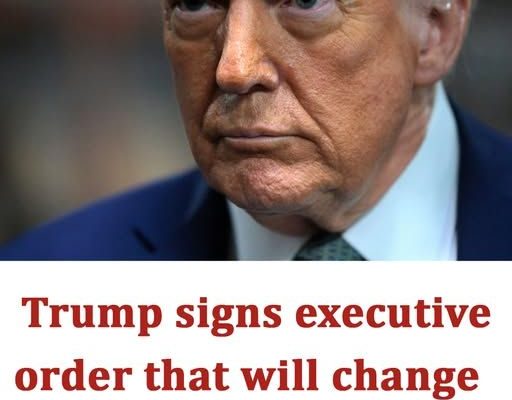Trump Signs Executive Order to Overhaul U.S. Election Integrity Amid Controversy
Since taking office in January, the 78-year-old Republican president has issued nearly 100 executive orders, according to the Federal Register. His directives have spanned a wide range of topics, from renaming the Gulf of Mexico to the Gulf of America to dismantling the Department of Education. However, his latest executive order is drawing intense scrutiny and sparking fierce debate across the country, with critics warning that it could disenfranchise millions of voters.

On Tuesday, President Trump signed the Preserving and Protecting the Integrity of American Elections order, a sweeping initiative requiring voters to provide proof of U.S. citizenship when registering to vote in federal elections. The administration argues that the move is crucial to ensuring that U.S. elections remain “free, fair, and honest,” and free from any form of fraud or suspicion.
New Voter ID Requirements
The executive order outlines a new set of voter identification requirements aimed at tightening security during federal elections. According to the Associated Press, under the new rules, eligible voters will need to present documentary proof of U.S. citizenship, such as:
-
-
A U.S. passport
-
-
-
A REAL ID-compliant driver’s license or state ID
-
-
-
A military identification card
-
Failure to present one of these documents will result in the voter being barred from participating in federal elections. The order also mandates that state election officials collaborate with federal agencies, including the Department of Homeland Security and the State Department, to share voter registration data. This cooperation aims to help identify and remove non-citizens from the voter rolls.
Impact on Mail-In Voting and Legal Challenges Ahead
Another significant change introduced by the executive order affects mail-in voting. Under current law, 18 states and Puerto Rico allow ballots postmarked by Election Day to be counted if they arrive after the deadline. Trump’s new directive will eliminate this provision, requiring all mail-in ballots to be received by Election Day itself.
The executive order has already generated significant legal concerns. Legal experts predict it will face multiple court challenges. Rick Hasen, a law professor at UCLA, called the order an “executive power grab” that could shift the oversight of elections from individual states to the federal government. Wendy Weiser, from the Brennan Center for Justice, also noted that the president “cannot override a statute passed by Congress” concerning voter registration requirements.
In addition to the changes to voter registration, the executive order also threatens to withhold federal funding from states that do not comply with the new rules. Critics argue that this could drastically reshape how elections are conducted throughout the United States, potentially penalizing states that resist the federal mandate.
Trump’s Position on Election Fraud
During the signing of the executive order, President Trump told reporters, “Election fraud. You’ve heard the term. We’re going to end it, hopefully. At least this will go a long way toward ending it.” His administration maintains that the order is necessary to safeguard the integrity of U.S. elections, which Trump has repeatedly claimed are vulnerable to fraud.
Opposition and Concerns of Voter Suppression
However, opponents of the new order argue that it could make voting harder for many Americans, particularly those who face barriers to obtaining the required identification documents. Jena Griswold, Colorado’s Democratic Secretary of State, condemned the order as “unlawful” and described it as an attempt to suppress voter turnout.
With previous attempts to pass strict voter ID laws faltering in Congress, Trump’s executive order is likely to face intense legal battles. Whether the order will withstand judicial scrutiny remains uncertain, but one thing is clear: it has reignited a fierce national debate about voting rights, election security, and the role of federal power in overseeing elections.




